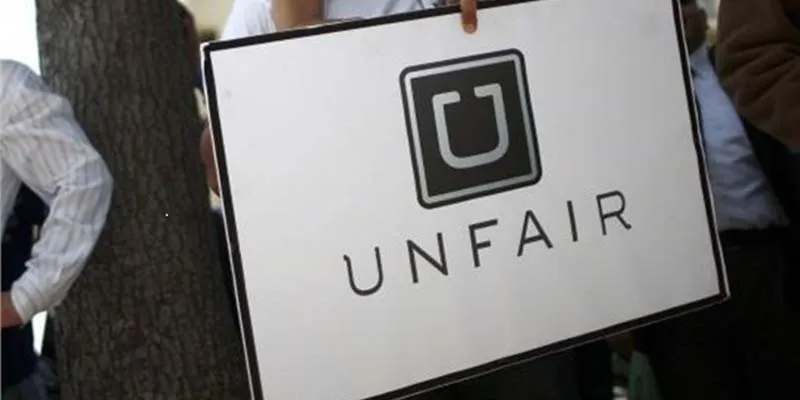This is the real reason why Uber fell into a regulatory soup and here's why it is relevant for your startup

Regulatory stance is often not clear in India, and the ghost of license raaj has still not stopped haunting us entirely. Law enforcement and bureaucracy will often go the extra mile against common sense and long term interests of the country (remember Vodafone taxation case) even when their position is obviously untenable.
If you think only big corporations get caught in such legal and regulatory quagmire, think again. The start-ups get stuck too, but that rarely hits the headlines. From payment start-ups to education or e-commerce start-ups, everyone doing business in India is familiar with regulatory uncertainty. Have no doubt about this – India is a very difficult country to do business in, as a World Bank Ease of Doing Business Index shows. One of the top reasons for this is regulatory environment. The regulatory response in Uber case after Delhi rape incident is a very instructive lesson for all the start-up founders as well as investors in the country. However, we will come to the lesson part later – let’s start with some basic understanding of what has been Uber doing in India. In light of how many conflicting statements have been made by the media on this, we need to come clear on some basics before we move forward.
Is Uber legal in India?
Is Uber legal in India? Back on 15th October, Rahul Bajaj wrote on this topic on iPleaders blog (read here) under my guidance. We looked into Uber’s business model and current laws in India. As we would expect, the law is yet to catch up with technology and there is a complete regulatory void with respect to transport booking apps like Redbus or Uber. There is absolutely no legal control on their business (which I felt at that time is a good thing). As a regular user of Uber and Ola, I hoped that these services will take firm roots in India before the regulatory giant wakes up from slumber and play spoilsport.
Well, the media attention has now indeed woke up the giant and it has started destroying things it does not even comprehend yet. The transport department, cannot, so far based on media reports, tell the difference between a radio taxi service and a cab booking app! What is next? Will you ask Redbus to take public transportation license? Will you ask AirBNB to take license of running hotels?
Uber is not a radio taxi service
First of all, Uber is not a radio taxi service by any stretch of imagination. It is a taxi booking app. Meru or TABcab are radio taxi services, but Ola, Taxi for Sure or Uber are not. Like you have hotel booking apps, flight booking apps and even doctor’s appointment booking app, Uber is a taxi booking app – which makes it very easy for you to book a cab. If you thought Uber is another Meru with a cool app, sorry – you have assumed something wrong. Just like Makemytrip does not provide airlines or hotel service, Uber is not a transportation service or radio service.
In light of this, the ban on providing “transport services” by Uber is pointless. There is no law in our country that currently make it mandatory for such taxi booking apps to take any precautions and conduct screenings.
The driver was not an Uber employee
Uber does not “hire” drivers, as some media has portrayed. There is no law in this country yet that requires a service like Uber to run any police verification either. The people who drive the car when you book an Uber car are either owner of a car they are driving, or hired by the owner of the car who registered on Uber. All of these people are neither employees nor agents of Uber, but independent third party contractors. Uber’s terms and conditions, that every Uber user agrees to, state this very clearly.
Does this mean Uber has no responsibility?
It is difficult to stick any criminal or civil charges on Uber. Legally, Uber is completely in the clear until our Parliament makes some law regulating taxi booking or other transport booking services. The knee jerk reaction of the administration will be futile as there is no legal basis to any of its action so far. However, this hurts the business. Regulatory uncertainty costs businesses massively. The damage to reputation, however, is going to cost Uber a lot more – so they have little choice but to fix things proactively.
Of course, Uber understands that the popular demand is that they provide safety as well, so they will probably see it as a cost of business now and provide it – but safety also comes at a price. We can expect that Uber will take some steps to ensure more safety and of course, pass on the cost to customers. Most probably, more secure cabs (with stringent checks, RFID/GPS tracking or cameras) will be charged at a premium rate. To be noted, none of these will probably ensure that the cabs would be perfectly safe – criminals will always find a way to commit a crime. Nothing Uber can do will change the fact that our society is unsafe for women and will continue to remain so in near future. You may boycott Uber or even ban it with a law, but what will happen to the unsafe streets, black and yellow cabs, autos and everything else that ply on our roads? What about private buses – in one of which the Nirbhaya incident took place?
Government measures, as usual, fall short of solving any problems but create new ones for commuters.
If this is not really about Uber breaking law, what went wrong for it?
Uber did not break any law, but it missed out on a major opportunity to make its cabs safer. It forgot how important the human element of its business is. When all the law books and statutes are closed, we are left with the fact that many Uber users, especially women, relied on it as a safe option, and that trust was shattered. Uber entirely failed to take into account women’s safety, a burning issue in India, especially Delhi. It did nothing to promote the security of its women passengers.
Can you imagine? World’s hottest transport company, impacting lives of millions of women worldwide, did not think of women’s safety. It’s not like they did not have the money or the brains - just that it was not a priority. This came back to bite Uber in the ass, and it fell into a regulatory soup due to a huge backlash from the establishment.
However, this could strike some fear, and justifiably, in the heart of rest of us entrepreneurs. In the hurry to build million dollar businesses, we cannot forget the cause of women’s safety.

Let me share my experience with you on this matter. We run Cloudtrain.in, a cloud-based online training and compliance solution for sexual harassment laws. We wanted to keep it super affordable – so we charge just INR 100 per employee and it can be deployed in 48 hours. We have been helping some of the corporate giants in India with thousands of employees, and even a few start-ups as well, to comply with the sexual harassment laws enacted in 2013. My experience with start-ups, however, was not very good. Even well-funded start-ups completely ignore implementation of mandatory measures prescribed under anti-sexual harassment laws just to save a few thousand rupees. The common attitude is that when government starts taking action for non-compliance – we will see what to do at that time. Of course, there are notable exceptions. Alok Kejriwal of Games2win, for example, actively mentored us to build Cloudtrain.in and was our first ever customer for that product. Based on this experience, we later collaborated with a National Law University to build a three months executive program to address sexual harassment in workplace, as reported by Times of India here.
Safety of women is not just a compliance checkpoint – the lesson from Uber and others
Safety of women is not just a compliance checkpoint – it can very quickly become a question of survival for your business, like it happened to Tehelka. Taking this lightly cost this tech services company in Bangalore its business license and arrest of directors. It cost 1.5 crores in fine to this company from Chennai as well.
However, you may have missed the point as media coverage of the above cases was limited. If that is the case, I hope the Uber case has put your thoughts in the right perspective: Don’t take women’s safety, of your own employees or women customers, lightly.
Actively build a culture in your organisation, and even train other stakeholders if they interact with your customers, to make safety of women non-negotiable. Immediately create a mechanism to take care of this if you have not already done so. Let this be the lesson for you from the regulatory doomsday of Uber India.
About the author:
If you want us to help with figuring out sexual harassment or women’s safety issues for your organisation, you can reach out to me on [email protected]











